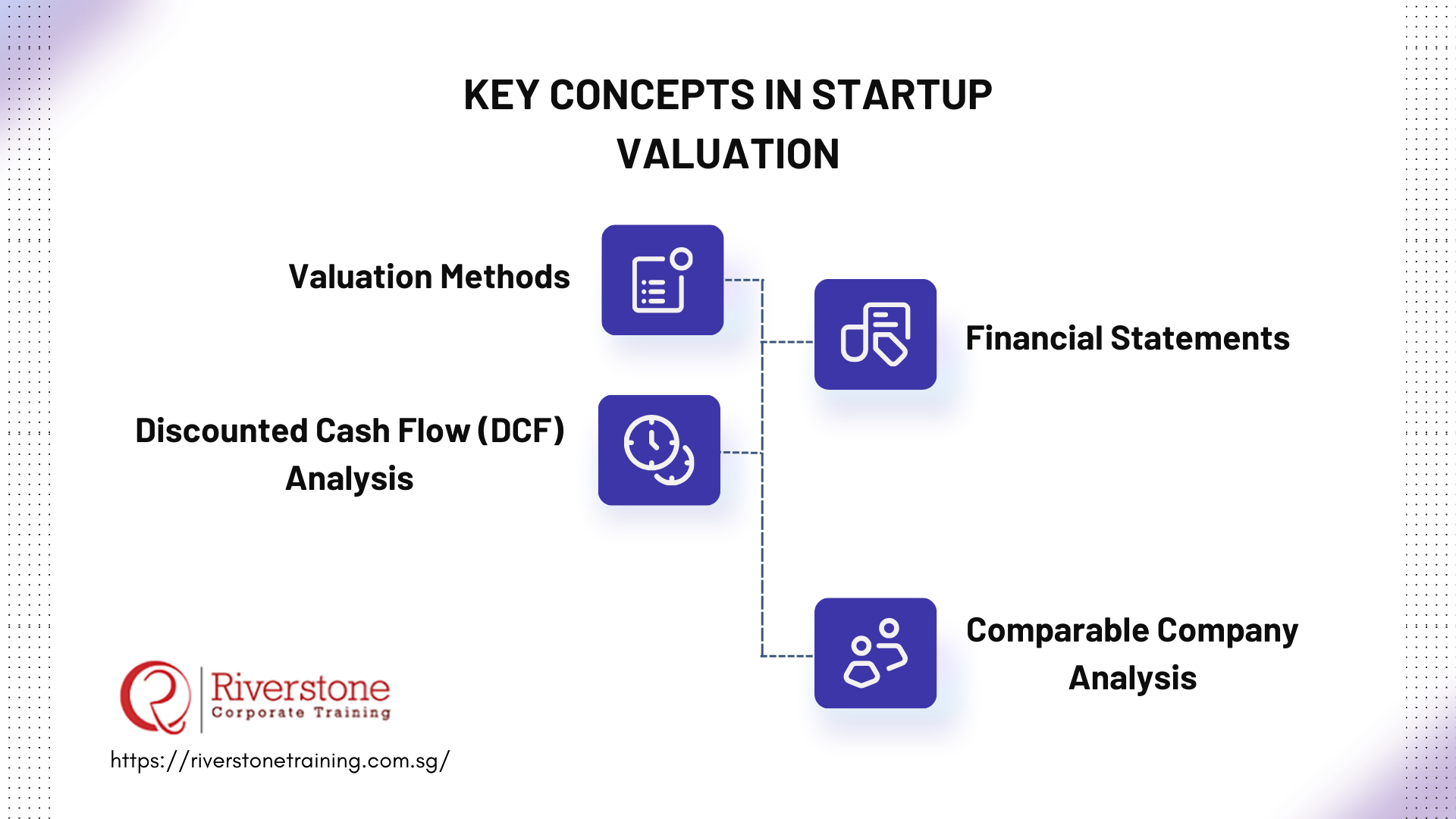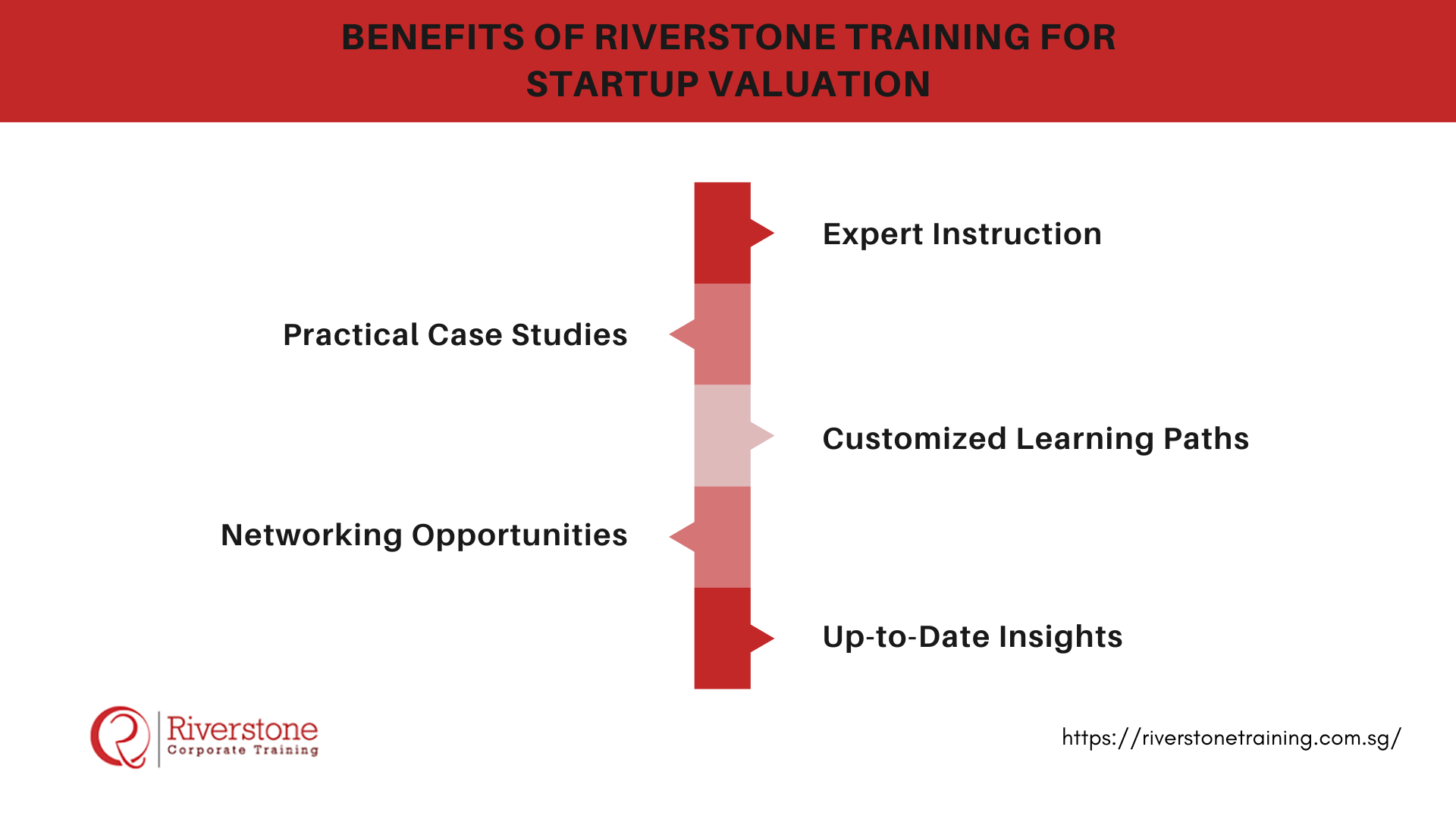
The Intermediate Guide to Mastering Startup Valuation with Riverstone Training.
Startup valuation is a crucial aspect of building and scaling a successful business. Accurately determining the value of your startup can greatly impact your ability to attract investors, negotiate partnerships, and make informed strategic decisions. Riverstone Training offers a comprehensive program designed to help entrepreneurs and business leaders navigate the complex landscape of startup valuation. In this article, we’ll explore the key concepts and benefits of startup valuation through Riverstone Training.
Key Concepts in Startup Valuation:
Valuation Methods:
Riverstone Training provides a deep dive into various valuation methods, including the Income Approach, Market Approach, and Asset-Based Approach. You’ll learn startup business valuation methods that are applicable across different stages of development, factoring in revenue projections and industry benchmarks. Additionally, you will learn intellectual property valuation methods to assess the worth of intangible assets such as patents, trademarks, and proprietary technologies—essential for making informed investment and strategic decisions.
Financial Statements:
Understanding financial statements is essential for accurate valuation. Riverstone Training covers how to interpret income statements, understanding balance sheets for beginners, and cash flow statements, enabling you to extract valuable insights about a startup’s financial health.
Discounted Cash Flow (DCF) Analysis:
Learn the importance of DCF analysis is a cornerstone of startup valuation. Riverstone Training guides you through the intricacies of forecasting future cash flows, selecting appropriate discount rates, and calculating the present value of those cash flows to determine a startup’s intrinsic value.
Comparable Company Analysis:
Riverstone Training teaches you how to identify and analyze comparable companies in the same industry, assessing their valuations and using them as benchmarks to estimate your startup’s value.
Benefits of Riverstone Training for Startup Valuation:
- Expert Instruction: Riverstone Training offers instruction from seasoned professionals with extensive experience in startup valuation. You’ll benefit from their expertise and gain insights into real-world valuation scenarios.
- Practical Case Studies: The training program includes practical case studies and hands-on exercises that simulate actual valuation scenarios. This experiential learning approach helps you apply theoretical concepts to real situations.
- Customized Learning Paths: Riverstone Training recognizes that startups vary widely in their industry, stage, and business model. The program offers customizable learning paths that cater to the specific needs of your startup, ensuring you acquire relevant skills and knowledge.
- Networking Opportunities: Engaging with a community of fellow entrepreneurs and business leaders during Riverstone Training opens up networking opportunities. You can exchange ideas, discuss challenges, and gain insights from peers who are also navigating the world of startup valuation.
- Up-to-Date Insights: Startup valuation practices evolve over time. Riverstone Training keeps you informed about the latest trends, methodologies, and regulatory changes in the valuation landscape, ensuring your knowledge remains current and relevant.
Startup Valuation in Attracting Investors
Accurate startup valuation is the cornerstone of successful fundraising, directly influencing a startup’s ability to attract investors and negotiate beneficial partnerships. Healthy revenue forecasts backed by industry standards and a clear intellectual property knowledge are the foundation of strong valuations. Investors want to find verified data that demonstrate the ability of a startup to grow and its financial well-being. Comprehensive valuation, which includes such methods as DCF Analysis and Comparable Company Analysis, makes information on the intrinsic value further clear. Learning this art and science would enable entrepreneurs and business leaders to proudly promote the value of their company, which enables making strategic decisions and raising much-needed investment to build and grow a successful company.
Conclusion of Mastering Startup Valuation with Riverstone Training:
Startup valuation is a critical skill for entrepreneurs and business leaders, impacting fundraising, strategic decisions, and partnerships. Riverstone Training offers a comprehensive program that equips you with the knowledge and tools needed to master the art and science of startup valuation. By enrolling in Riverstone Training, you can enhance your ability to accurately assess the value of your startup and make informed, strategic choices for its growth and success.



